Félix Houphouët-Boigny Peace Prize
The Félix Houphouët-Boigny Peace Prize was established in 1990 by UNESCO:
- "to honour living individuals and active public or private bodies or institutions that have made a significant contribution to promoting, seeking, safeguarding or maintaining peace in conformity with the Charter of the United Nations and the Constitution of UNESCO."
The prize bears the name of Félix Houphouët-Boigny, the late former president of Côte d'Ivoire, who served from independence in 1960 until his death in 1993. It is awarded annually. The prize includes a cheque of US$150,000, a gold medal and a peace diploma. If there are multiple recipients, the cheque is shared equally.
Recipients
| Year | Recipient | Country | Rationale | |
|---|---|---|---|---|
| 1991 | 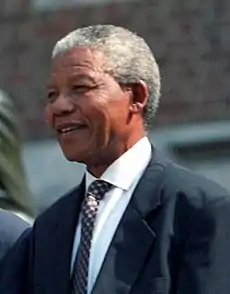 |
Nelson Mandela | South Africa | "For their contribution to international peace, to encourage them to continue in their effort and as a tribute to what they have done to educate their people towards understanding and overcoming of prejudice that many would not have thought possible a few years ago"[1] |
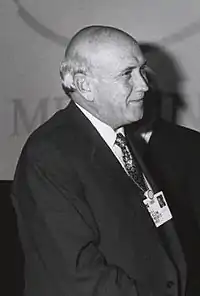 |
Frederik Willem de Klerk | |||
| 1992 | 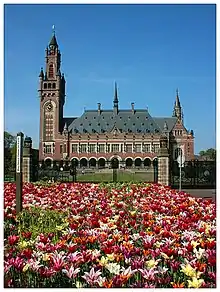 |
Hague Academy of International Law | Netherlands | "We believe the world is in a new phase of international relations. Quite different from the one through which we have just gone (...) and we are convinced that international law must be given a larger role in the settlement of international disputes and in the solution of international problems."[2] |
| 1993 | _cropped.jpg.webp) |
Yitzhak Rabin | Israel | "We have concluded that this year, naturally, the most dramatic and important event has been the agreement between the Palestinians and Israel, and our Committee has therefore awarded the 1993 Félix Houphouët-Boigny Peace Prize to Prime Minister Yitzhak Rabin and to Foreign Minister Shimon Peres on the Israeli side, and to Chairman Yasser Arafat for the Palestine Liberation Organization."[3] |
 |
Shimon Peres | |||
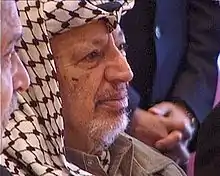 |
Yasser Arafat | Palestinian territories | ||
| 1994 | 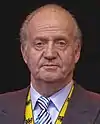 |
Juan Carlos I of Spain | Spain | "(...) [The King of Spain], for his role in guaranteeing the transition to democracy, for his continuing contribution to the protection of minorities in the transition to democracy, and for the international role of conciliation that Spain has played. [Carter for] his capacity as Chairman of the Carter Center and his contribution to the pursuit of peace in many different parts of the world and (...) succeeding in making such a contribution even before the government of his country had requested him to do so."[4] |
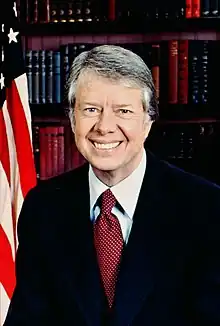 |
Jimmy Carter | United States | ||
| 1995 |  |
Office of the United Nations High Commissioner for Refugees | Switzerland | "We have agreed unanimously to give a dual prize to the Office of the United Nations High Commissioner for Refugees for the work that it is doing and secondly to the United Nations High Commissioner for Refugees, Ms. Ogata, for the distinctive quality she has added to the mission that has been assigned to her, for the excellence of her efforts and for the way she has raised international concern for the refugees."[5] |
 |
Sadako Ogata | Japan | ||
| 1996 |  |
Álvaro Enrique Arzú Irigoyen | Guatemala | |
| Rolando Morán | ||||
| 1997 |  |
Fidel V. Ramos | Philippines | "For the agreement they have made in ending the conflict on 2nd September 1996 between the Philippines Government and the Moro National Liberation Front."[6] |
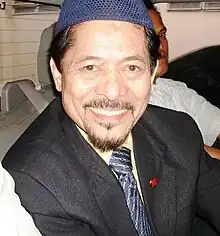 |
Nur Misuari | |||
| 1998 | 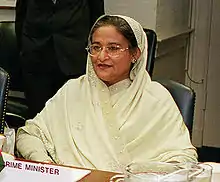 |
Sheikh Hasina | Bangladesh | "In awarding the 1998 Prize to Sheikh Hasina, Prime Minister of the People's Republic of Bangladesh who, on 2 December 1997, signed a peace agreement which put an end to 25 years of civil war, and to Senator George J. Mitchell whose work enabled the main players in the Irish crisis to sign the Good Friday Agreement, the Jury has wanted to focus attention on the efforts deployed in the search for peace through dialogue and negotiation."[7] |
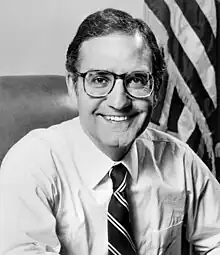 |
George J. Mitchell | United States | ||
| 1999 | 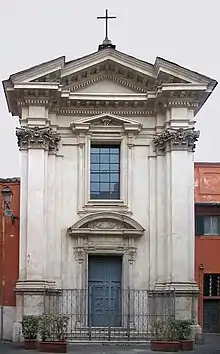 |
Community of Sant'Egidio | Italy | "In recognition of their efforts in achieving ecumenical understanding between all religions, their efforts of conciliation in Algeria, Mozambique, Guinea-Bissau and Yugoslavia, for their contribution to human understanding and for eliminating the religious, political and ethnic sources of conflict."[8] |
| 2000 | 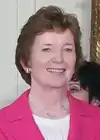 |
Mary Robinson | Ireland | "For the great contribution that she has made for the defence and promotion of Human Rights. The decision, of course, was unanimous."[9] |
| 2001 | Not awarded | |||
| 2002 | 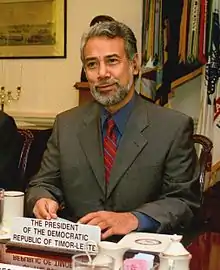 |
Kay Rala Xanana Gusmão | East Timor | "For his contribution to the fight for human dignity and for his conduct which has elevated the human spirit not only in his region, but in the world."[10] |
| 2003 | .jpg.webp) |
Roger Etchegaray | France | "In recognition of their action in favour of inter-faith dialogue, tolerance and peace."[11] |
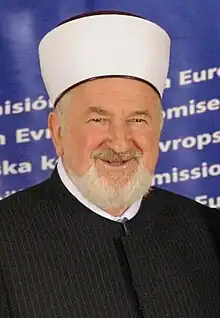 |
Mustafa Cerić | Bosnia and Herzegovina | ||
| 2004 | Not awarded | |||
| 2005 |  |
Abdoulaye Wade | Senegal | "For his contributions to democracy in Senegal, and for his role in mediating political disputes in the region."[12] |
| 2006 | Not awarded | |||
| 2007 | 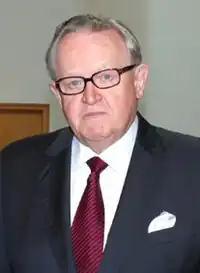 |
Martti Ahtisaari | Finland | "For leading the process that resulted in independence of Namibia and for [his] very great contribution to the resolution of the fatricidal conflict between the Indonesian Government and the Free Aceh Movement."[13] |
| 2008 | 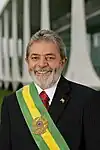 |
Luiz Inácio Lula da Silva | Brazil | "For his actions in pursuit of peace, dialogue, democracy, social justice and equal rights, as well as for his valuable contribution to the eradication of poverty and the protection of minorities' rights."[14] |
| 2009 | Not awarded | |||
| 2010 | Not awarded | |||
| 2011 |  |
Grandmothers of the Plaza de Mayo | Argentina | |
| 2013 | _(cropped).jpg.webp) |
François Hollande | France | |
| 2017 | SOS Méditerranée | ٍEurope | ||
| 2017 | Giuseppina Maria Nicolini | Italy | For saving lives of refugees and immigrants.[15] | |
| 2019 | .jpeg.webp) |
Abiy Ahmed | Ethiopia | For his peacemaking efforts in his country and the Horn of African region.[16][17][18] |
| 2022 | 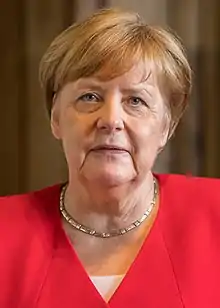 |
Angela Merkel | Germany | For her efforts to welcome refugees during the 2015 European migrant crisis.[19][20][21] |
References
- Kissinger, Henry. Statement announcing the prizewinners. UNESCO official website. Retrieved on 31 May 2009.
- Kissinger, Henry (13 October 1992). Statement announcing the prizewinner. UNESCO official website. Retrieved on 2009-05-31.
- Kissinger, Henry (17 September 1993). Statement announcing the prizewinners. UNESCO official website. Retrieved on 2009-05-31.
- Kissinger, Henry (10 January 1995). Statement announcing the prizewinners. UNESCO official website. Retrieved on 2009-05-31.
- Kissinger, Henry (18 January 1996). Statement announcing the prizewinners. UNESCO official website. Retrieved on 2009-05-31.
- Kissinger, Henry (17 June 1998). Statement announcing the prizewinners. UNESCO official website. Retrieved on 2009-05-31.
- Kissinger, Henry (1 April 1999). Statement announcing the prizewinners. UNESCO official website. Retrieved on 2009-05-31.
- Kissinger, Henry (27 January 2000). Statement announcing the prizewinner. UNESCO official website. Retrieved on 2009-05-31.
- Kissinger, Henry (29 May 2001). Statement announcing the prizewinner. UNESCO official website. Retrieved on 2009-05-31.
- Kissinger, Henry (9 October 2002). Statement announcing the prizewinner. UNESCO official website. Retrieved on 2009-05-31.
- Kissinger, Henry. Statement announcing the prizewinners. UNESCO official website. Retrieved on 7 July 2009.
- Kissinger, Henry (13 September 2005). Statement announcing the prizewinner. UNESCO official website. Retrieved on 2009-07-07.
- Soares, Mário (2 October 2008). Statement announcing the prizewinner. UNESCO official website. Retrieved on 2009-07-07.
- Soares, Mário (7 May 2009). Statement announcing the prizewinner. UNESCO official website. Retrieved on 2009-07-07.
- "Migrant rescuers, island mayor win UNESCO peace prize". au.news.yahoo.com.
- "Abiy Ahmed Ali, Prime Minister of the Federal Democratic Republic of Ethiopia laureate of the 2019 edition of the Félix Houphouët-Boigny". UNESCO. 2 May 2019. Retrieved 24 August 2022.
- "Abiy Ahmed awarded the Félix Houphouët-Boigny Peace Prize". thisisafrica.me.
- "PM Abiy named laureate of the 2019 UNESCO Peace Prize". Embassy of Ethiopia, London. 3 May 2019. Retrieved 24 August 2022.
- "Angela Merkel is awarded the Félix Houphouët-Boigny-UNESCO Peace Prize". UNESCO. 23 August 2022. Retrieved 23 August 2022.
- "Angela Merkel awarded the 2022 Unesco Peace Prize for her efforts to welcome refugees". The Brussels Times. Retrieved 24 August 2022.
- "Merkel erhält Unesco-Friedenspreis für Aufnahme von Flüchtlingen". Der Standard (in German). 23 August 2022. Retrieved 24 August 2022.
External links
This article is issued from Wikipedia. The text is licensed under Creative Commons - Attribution - Sharealike. Additional terms may apply for the media files.